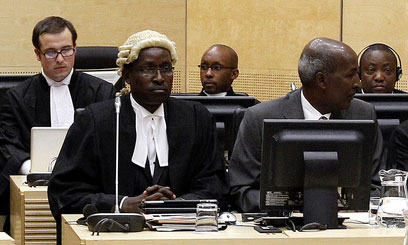أحكام المحكمة الجنائية الدولية المتزامنة في كينيا ليست من قبيل الصدفة
اليوم ترحب حرب الطغيان القانونية بإيفانز موناري، الذي يحظى بإحترام كبير من قِبَل كبار محامي التقاضي في كينيا، والذي “يمثل عملاء مختلفين في الاستجوابات والتحقيقات العامة. وقد ظهر أيضا للدفاع…


